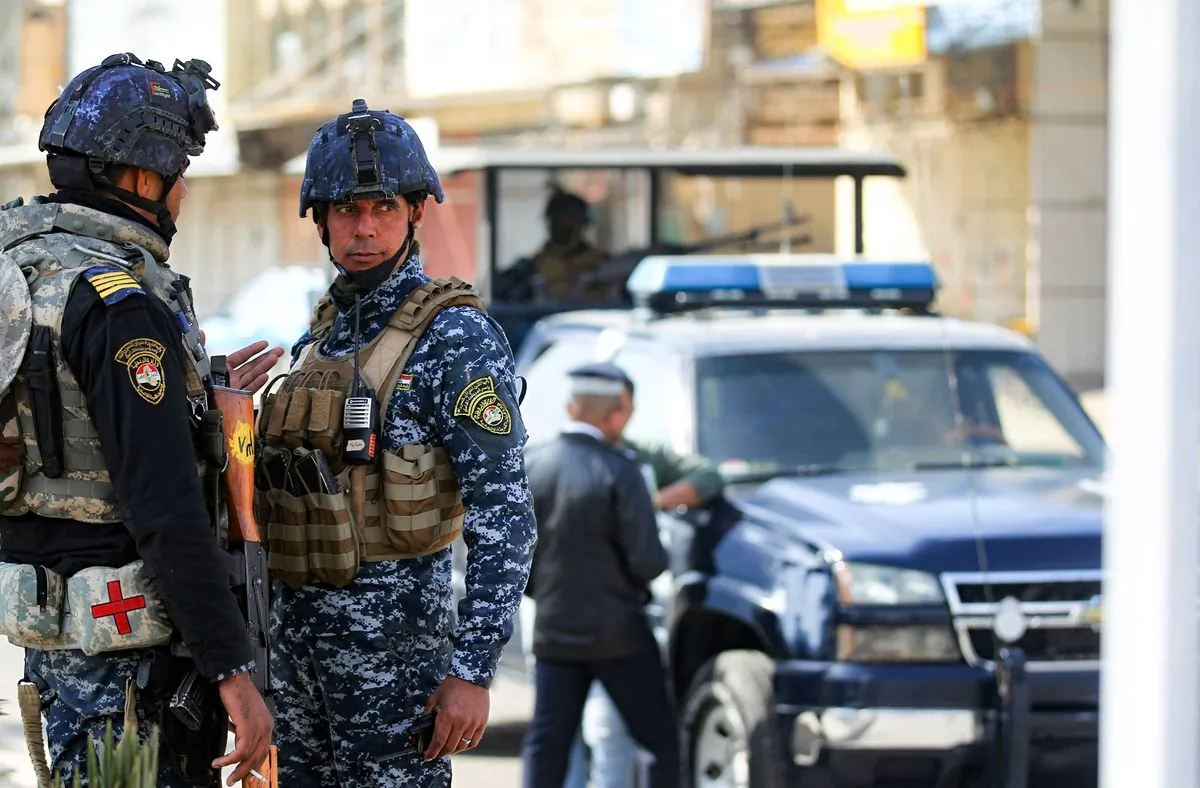In a recent incident highlighting ongoing security concerns in northern Iraq, a roadside bomb detonated in Kirkuk, injuring four individuals. The explosion occurred on October 4, 2024, targeting a bustling commercial area in the heart of the city.
Kirkuk, an oil-rich metropolis with a population of approximately one million, has long been a focal point of regional tensions. The city's strategic importance stems from its vast oil reserves, which contribute significantly to Iraq's petroleum exports. This economic significance, coupled with Kirkuk's diverse ethnic composition of Kurds, Arabs, and Turkmen, has made it a frequent target for violent attacks.
The recent bombing follows a disturbing pattern of violence in the region. Earlier in the week, an ambush on an army convoy southwest of Kirkuk resulted in the deaths of four Iraqi soldiers and left three others wounded. The Islamic State (IS) claimed responsibility for this attack, demonstrating the group's continued ability to carry out hit-and-run operations despite its territorial defeat in 2017.
These incidents underscore the persistent security challenges facing Iraq, particularly in areas once controlled by IS. The extremist group's remnants continue to pose a threat, exploiting vulnerabilities in the country's security apparatus to conduct sporadic attacks.
Kirkuk's tumultuous recent history includes a brief period of IS control in 2014, followed by its recapture by Iraqi forces from Kurdish Peshmerga in 2017. This complex political and military landscape has contributed to the city's volatility, making it a flashpoint for various conflicts and disputes.
The city's rich cultural heritage, dating back to 2400 BC, stands in stark contrast to its current security situation. Kirkuk boasts ancient archaeological sites, including the Kirkuk Citadel, which bear witness to its historical significance. However, the ongoing violence and political instability have overshadowed these cultural treasures.
Environmental challenges compound Kirkuk's difficulties, with oil production and conflicts taking a toll on the region's ecology. The city's semi-arid climate, characterized by hot summers and cool winters, adds another layer of complexity to its socio-economic challenges.
As international diplomatic efforts continue to address Kirkuk's status and the broader security situation in Iraq, the recent attacks serve as a stark reminder of the work that remains to be done. The resilience of Kirkuk's diverse population, coupled with its economic potential, offers hope for a more stable future, but achieving this will require sustained efforts to address the root causes of violence and instability in the region.
"We are working tirelessly to enhance security measures in Kirkuk and throughout the region. These cowardly attacks will not deter our efforts to ensure the safety and well-being of our citizens."
The ongoing security challenges in Kirkuk reflect broader issues facing Iraq as it strives to overcome the legacy of conflict and build a more stable and prosperous future for all its citizens.
